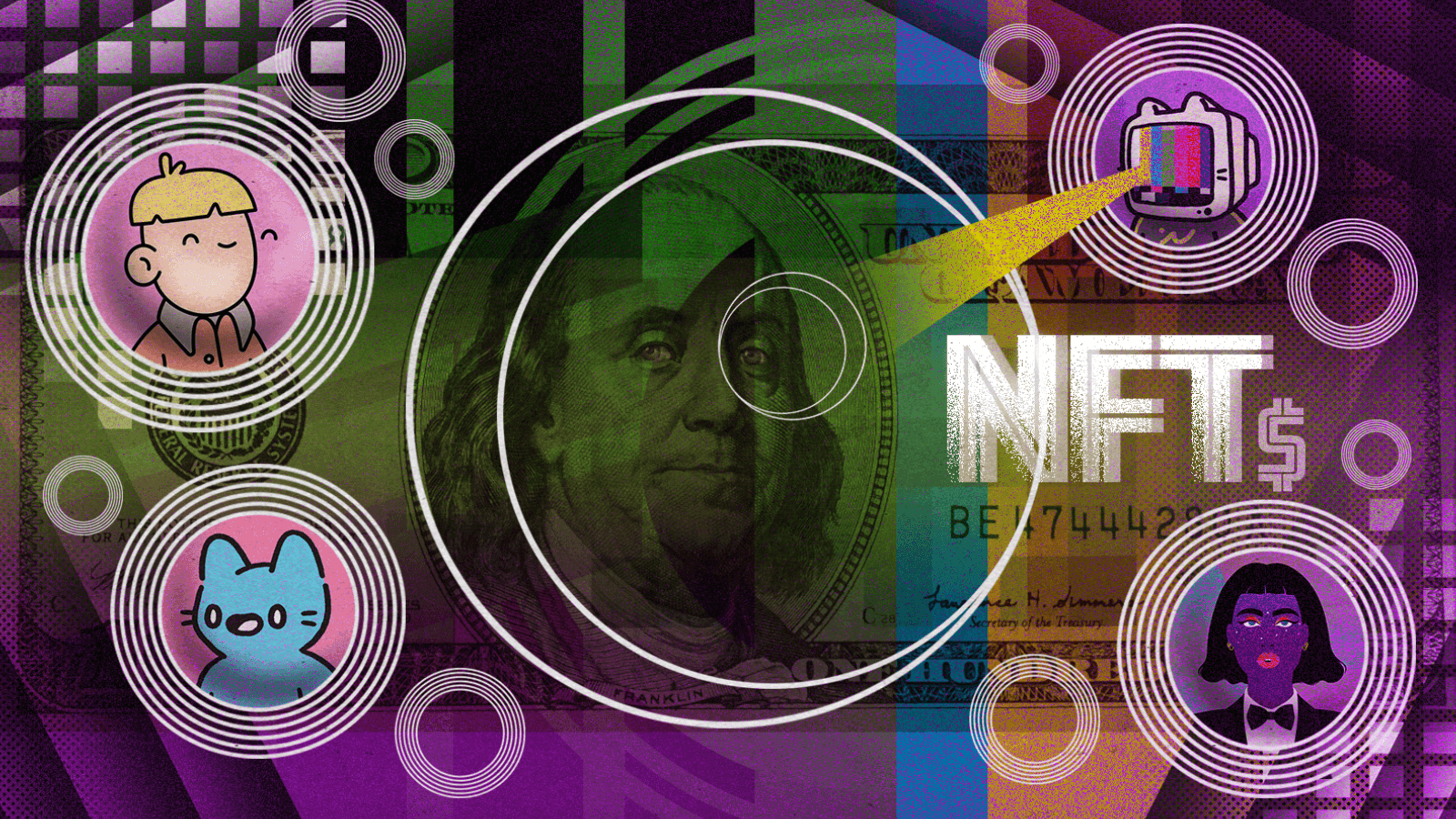FTX General Counsel: NFT Copyright Infringement Is Our ‘Biggest Issue’
Legal answers to intellectual property questions surrounding NFTs are unclear

Blockworks Exclusive Art by Axel Rangel
- Centralized NFT platforms must find a solution to intellectual property issues before regulators step in, attorneys warn
- There is currently no effective system for authenticating NFTs and intellectual property
As Web3 and NFT spaces continue to grow, infrastructure is not expanding at the same rate, causing headaches for many attorneys in the space.
The biggest issue that centralized NFT exchange FTX faces is making sure that users are only listing content that they actually own, Ryne Miller, the exchange’s general counsel said during a panel discussion at the Cornell Blockchain Conference in New York, Friday.
“The ‘right click, save’ thing, is the issue,” he said, referring to how people can copy another NFT (non-fungible token) and mint it as their own. “Our biggest issue is making sure people don’t list NFTs for which they don’t own copyright, or whatever other intellectual property they need, and it’s a very manual process. It takes a ton of effort and energy.”
A potential solution, Miller said, might be a community-driven, incentive-based moderating system where users could keep each other in check, similar to OpenSea’s current system of verified collections.
The concept is not that different from what currently exists in the legal system, other panelists pointed out.
“Ultimately, what intellectual property is, is society recognizing that this thing is real, and this is not real,” James Rathmell, general counsel at Haun Ventures, said. “I mean, it’s a government-granted license for that, but ultimately, it’s society agreeing on what things you own and what things you do not own.”
Consumers also have to be aware when interacting with these marketplaces, Miller said, but consumer protection laws are going to come eventually, and platforms should be prepared.
“Tell buyers to do their own research, that would solve this problem,” he said. “‘Do your own research’ is a good solution, but you’re going to have governments and consumer regulation folks step in before that.”
Some NFTs are designed to have utility, so while a copy may look the same, it will not be accepted by smart contracts tailored to an original. That opens up the possibility for authentication not available in other forms of digital art.
The space is moving much faster than regulation, Rathmell agreed. Web3 platforms and regulators need to have a mutual understanding of what risks they are trying to mitigate.
“They need to get that information out into the market so that everyone is on the same playing field,” he said.
Get the news in your inbox. Explore Blockworks newsletters:
- The Breakdown: Decoding crypto and the markets. Daily.
- 0xResearch: Alpha in your inbox. Think like an analyst.






